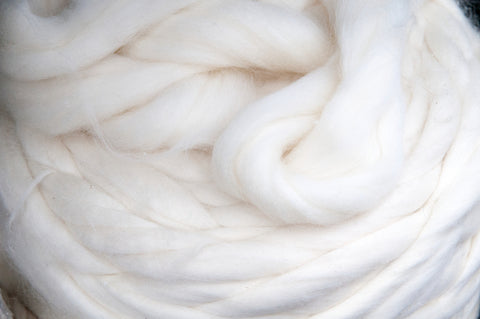November 16, 2018
Are you tossing and turning at night? Having trouble falling asleep? Maybe feeling a little extra fatigued in the morning? It’s time to take a look at the often-overlooked sleep essential that has a big impact on your overall health: your mattress.
Buying a mattress is an important investment — not only because it’s a necessary piece of furniture you’ll own for years and years, but also because it’s a place where you’ll spend a lot of your time. The average human spends one-third of their lifetime sleeping (or trying to sleep, if you fall under the insomniac category). With this knowledge, it makes perfect sense to choose a mattress that really makes you feel comfortable and supported.
When we talk about sleep health — or “sleep hygiene,” as it’s sometimes called — we talk a lot about things like developing a consistent bedtime routine, avoiding caffeine, improving your sleep environment, and of course, choosing the perfect mattress. But there’s one important aspect of sleep hygiene that often gets overlooked: avoiding the chemicals that could be impacting our health underneath our very own pillows.
You may not have thought about it before, but the mattress you sleep on each night probably contains a number of harmful chemicals. Not only have these chemicals been shown to affect your health over time, but they can also cause harm to the environment during their production process — as well as to the workers who handle them. And in 2009 alone, the EPA reported 9.8 million tons per year of furniture waste in the United States — waste that could be mitigated if we chose 100% organic mattresses that could be refreshed, refurbished, recycled, and finally, naturally decomposed.



At Soaring Heart, we believe wholeheartedly in the power of choosing 100%, GOTS- and GOLS- certified organic materials for our mattresses, bed frames, shikibutons, futons, pillows, and bedding. With organic materials and ethical production practices, we hope to positively impact the world as much as possible along the way to creating the perfect mattress for our customers. Our ultimate goal? Through this use of sustainable materials, we hope to provide the healthiest, most restful sleep of your lifetime.
We’ve created this guide as a tool for those who are just starting on the search for the perfect mattress and are curious about the difference sustainable choices can make in getting great sleep. Read on to learn more.

Have you ever thought about how many added chemicals go into the average mattress? It’s likely not the first thing on your mind while you’re turning in for the night or lying in bed in the morning after pressing snooze, sneaking in a few extra minutes of shut-eye.
But although most mattress companies may even claim to be safe, according to Mother Jones, they are often packed with chemicals that allow them to pass fire resistance tests mandated by the Consumer Product Safety Commission in 2007 — even though they often contain very flammable, petroleum-based products such as polyurethane foam.
“Major manufacturers such as Simmons, Sealy, and Tempur-Pedic won’t divulge their flame-retardant formulas, which are considered trade secrets,” Hannah Wallace writes for the magazine. But she goes on to point out that conventional mattresses have been shown to contain the following harmful chemicals:
-List compiled from Mother Jones and Environmental Working Group.
Exposure to these chemicals can happen in several ways, either through off-gassing, which means the chemical has begun to leak into the air, or through absorption on the skin. According to best-selling author Dr. Joseph Micola, the potential complications of long-term exposure can range from infertility, birth defects, neurodevelopmental delays, reduced IQ scores, to behavioral problems in children, hormone disruptions, and various forms of cancer.
Micola writes:
“Adding to the conundrum of using flame retardant chemicals, when on fire, objects doused in flame retardants (yes, they can still catch fire) give off higher levels of carbon monoxide, soot, and smoke than untreated objects. These three things are more likely to kill a person in a fire than burns, which means flame retardant chemicals may actually make fires more deadly.”

Without sounding too alarmist, the bottom line is clear: why choose a potentially harmful mattress when nature provides us with the perfect fire-resistant solution? 100% certified organic wool — aside from offering a wide variety of other benefits for healthy sleep — cannot, in fact, ignite. Instead, it turns to ash when it comes into contact with flame and easily passes all CPSC- mandated fire-resistant tests with flying colors.
Featuring chemical-free cotton, latex, and wool throughout, all Soaring Heart products are proudly chemical-free, 100% certified organic, and designed to provide each customer better health through sleep.
Mold and mildew growth on mattresses is a common problem, regardless of what type of mattress you have. If not cared for properly, any mattress can develop mold or mildew, simply because of the condensation caused by your body’s heat while you sleep or a lack of ventilation. With so much material packed tightly together, it’s difficult for mattress materials to breath, and when placed in an area without much airflow, they can easily become a breeding ground for mold and bacteria.
The first and most important step in preventing mold growth is choosing a mattress made from the right materials. Materials like polyurethane and plastics inhibit airflow and trap moisture, creating the perfect environment for growing mold — and that fact also includes bedding and mattress covers. Instead of choosing synthetic materials, try choosing breathable, natural fibers that possess natural anti-mold properties — such as organic latex, for example.

Organic latex, made from the sap of rubber trees, has been shown to be naturally mold-resistant, mildew-resistant, and fungus-resistant, due to its breathable composition and natural bacterial resistance. This is often the better choice over memory foam or synthetic latex not only because it can be sustainably-harvested, but because according to SFGate, memory foam has been shown to actually hold water — while synthetic latex lacks breathability and creates more moisture because of this. Other natural materials that have been shown to limit mold growth include organic wool and organic cotton, which promote breathability.
The next steps in prevent mold growth are common sense: take care of your bed, and your bed will take care of you. Even with naturally mold-resistant materials, you still need to take the following precautions to care for your bed and keep your sleeping environment healthy.
- Read more Soaring Heart care instructions.
Microscopic creatures that live in any soft material (upholstery, carpet, or stuffing) in your household and survive by eating dead skin cells, dust mites are one of the most common sources of household allergens. But rather than the dust mites themselves being harmful, as with bedbugs, it’s the mites' excrement that causes allergic reactions.
Because dust mites love beds where they have a warm, damp environment and plenty of food, mattresses made from synthetic materials are the perfect place for dust mites to thrive. Memory foam traps extra water, while other synthetic materials lack and breathability may create extra heat — aspects together create the ideal environment for dust mites to thrive.
With plenty of breathability and the added benefit of having antibacterial properties, latex and wool are both naturally unsuitable environments for dust mites. At Soaring Heart, we use the highest quality, certified organic latex and wool products to ensure durability through cleaning and maintenance for years to come.
- Read more Soaring Heart care instructions.

One of the wonderful things about owning a 100%-certified organic cotton mattress is that you can really narrow down — if not completely eliminate — common allergens. While non-organic, conventional mattresses contain scents, synthetic materials, and of course, known and unknown chemicals that may cause skin irritation and respiratory reactions, 100% organic mattresses guarantee that you’ve limited your potential allergens down to just a few ingredients.
You can still have allergies to natural products, of course! However, most perceived wool allergies are merely contact-irritation from the texture of the wool fibers rubbing against the skin. Actual wool allergies are usually due to a chemical reaction to the lanolin in wool. All Soaring Heart wool products are inside cotton cases and no skin contact ever takes place, but we recommend that you request a sample box if you have a sensitivity.
Both organic cotton and organic latex are naturally hypoallergenic products! Which makes them excellent mattress ingredients. As both 100% chemical-free and non-inflammatory products, they can make all the difference in your sleep comfort and health.

The last — but certainly not the least important — way that choosing organic can bring you the best night of sleep you’ve had in a long time: you don’t have to feel any guilt about this purchase.
When you purchase from a brand with both ethical and sustainable production practices, you’ll know that not only are your dollars going to your comfort, they’re also not going to a brand that is polluting the planet or profiting from underpaid labor. You can also breathe a sigh of relief knowing that when your 100% organic mattress finally makes it to the landfill, it will decompose without leaching more chemicals into the ground.
When it comes to purchasing a mattress from Soaring Heart, keep in mind that we offer free revitalizations for all of our products (you only pay for the cost of the new materials). This allows you to keep the same, supportive comfort for years and even decades.
The real secret to a great night’s sleep? Knowing your family is safe and sound. Since infants and children can often be extra sensitive to chemicals and also because they spend a lot of time sleeping, it’s especially important to make sure they have a healthy mattress, too. Shop Soaring Heart’s line of baby and kids products now.
Comments will be approved before showing up.
December 30, 2025
Make a resolution to sleep better this year with science-backed tips and the right tools. Learn how quality sleep improves health, mood, and energy, and how we can help.
September 29, 2025
One of the easiest and most impactful changes you can make in your home is swapping out synthetic dryer sheets for a set of 100% wool dryer balls. With every load, these dryer balls help reduce drying time, soften fabric naturally, and eliminate the need for synthetic additives - all while being reusable, compostable, and zero-waste.
September 22, 2025
Our Ballard team has joined forces with our Edmonds Showroom, now open 7 days a week as our Flagship Store!
Visit us at our
425-292-2808
111 Main Street Plaza, Suite 101 Edmonds, WA 98020